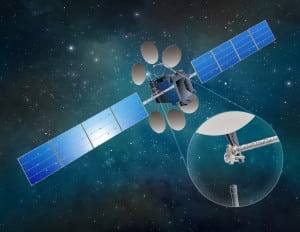
Space Systems Loral (SSL) filed a lawsuit on Wednesday alleging Orbital ATK [OA] stole its proprietary data relating to the NASA Dragonfly project.In the filing in the U.S. District Court for the Eastern District of Virginia, SSL alleged NASA Marshall Space Flight Center notified SSL last December that an employee of Orbital ATK accessed files on NASA’s NX server, at the administration’s Langley Research Center, beyond the files they were authorized to view.The Dragonfly program intends to eventually develop a…

 By
By 










